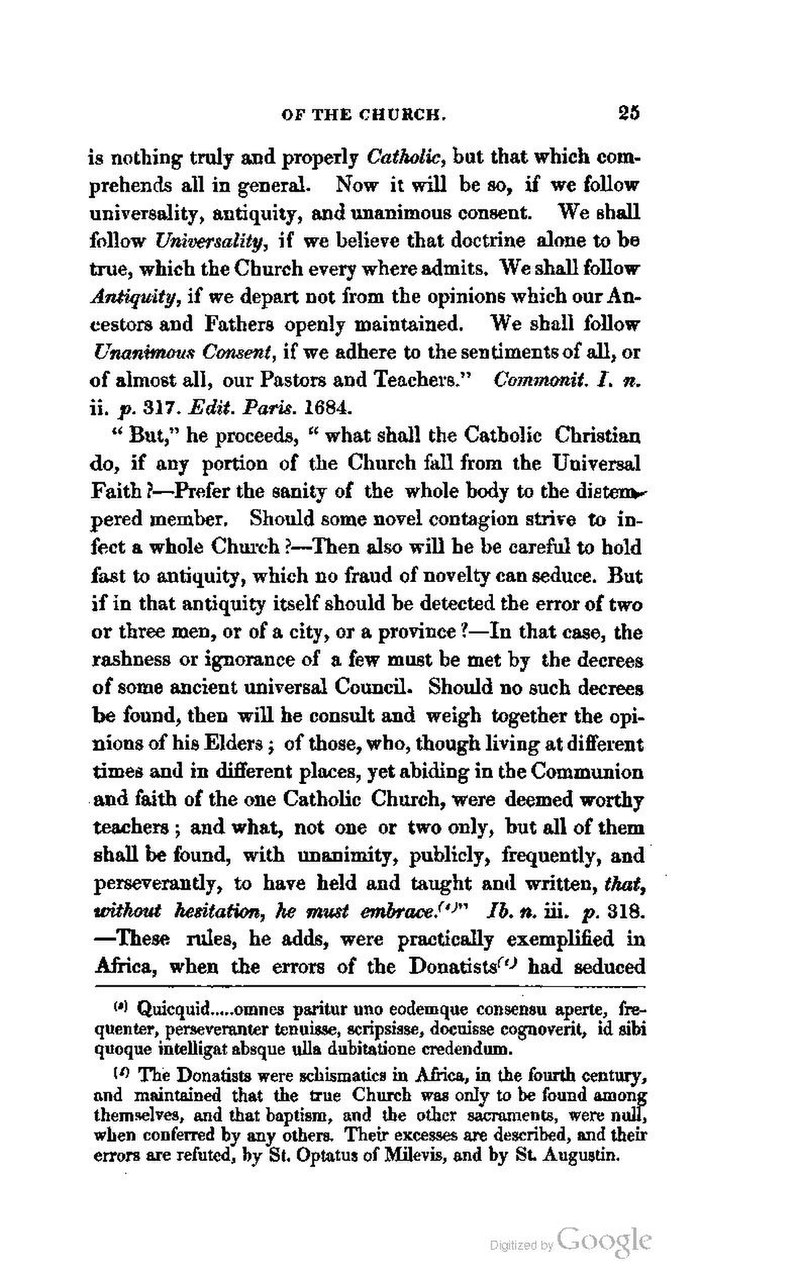is nothing truly and properly Catholic, but that which comprehends all in general. Now it will be so, if we follow universality, antiquity, and unanimous consent. We shall follow Universality, if we believe that doctrine alone to be true, which the Church every where admits. We shall follow Antiquity, if we depart not from the opinions which our Ancestors and Fathers openly maintained. We shall follow Unanimous Consent, if we adhere to the sentiments of all, or of almost all, our Pastors and Teachers.” Commonit. I. n. ii. p. 317. Edit. Paris. 1684.
But,” he proceeds, “what shall the Catholic Christian do, if any portion of the Church fall from the Universal Faith ?—Prefer the sanity of the whole body to the distempered member. Should some novel contagion strive to infect a whole Church?—Then also will he be careful to hold fast to antiquity, which no fraud of novelty can seduce. But if in that antiquity itself should be detected the error of two or three men, or of a city, or a province ?-In that case, the rashness or ignorance of a few must be met by the decrees of some ancient universal Council. Should no such decrees be found, then will he consult and weigh together the opinions of his Elders ; of those, who, though living at different times and in different places, yet abiding in the Communion and faith of the one Catholic Church, were deemed worthy teachers; and what, not one or two only, but all of them shall be found, with unanimity, publicly, frequently, and perseverantly, to have held and taught and written, that, without hesitation, he must embrace.)" Ib. n. iii. p. 318. -These rules, he adds, were practically exemplified in Africa, when the errors of the Donatists[1] had seduced
- ↑ The Donatists were schismatics in Africa, in the fourth century, and maintained that the true Church was only to be found among themselves, and that baptism, and the other sacraments, were nulì, when conferred by any others. Their excesses are described, and their errors are refuted, by St. Optatus of Milevis, and by St. Augustin.
